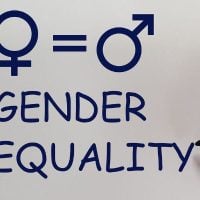An International human rights capacity-building NGO, Global Rights on Tuesday called on the National Assembly to stop consideration of NGO Regulatory Bill to save the country.
The Country Director of the NGO Ms Abiodun Bayewu-Teru said, “The National Assembly was currently considering the enactment of an Act to provide for the Establishment of NGO Regulatory Commission. The bill which would supervise, coordinate and monitor NGOs and CSOs had gone through first and second readings and was presently at the committee phase at the House of Representatives. The Bill would “governmentalise’’ NGOs in Nigeria and suffocate them with “exponential bureaucratisation at a time when official government policy is to ease transaction costs for small entities.”
She further said, “The bill sought to create a commission with a board which would license NGOs biennially before they could operate, adding that the associations were expected to disclose their sources of funding. The challenges with the proposed law are that all issues contained in the Bill are already regulated by existing law. A key issue that the Bill seeks to introduce is a new form of registration where the Board will have powers to license all NGOs. Without the license of the Board, no NGO can operate. This is proposed by the Bill, notwithstanding extant laws regulating all aspects of the operations of voluntary organisations.”
Bayewu-Teru added, “That as framed, the current bill had the potential to harm Nigeria’s fragile economy in a significant way, especially with its description of donor funds. She said that it described “foreign financial contribution,” which was the central theme as any financial donations or transfer made by any foreign source.”
According to her, this is broad enough to include every conceivable external fund except those involving the government of Nigeria and the government of any foreign country. This Bill has the potential to harm our economy in the way that we have described and the consequences are too dire to contemplate. The potential hurt was however not restricted to funds from Nigerians in diaspora, adding that it also extended to development support provided by international voluntary associations.
The country director said that the bill interfered with constitutionally protected rights to freedoms of expression, association and assembly in a profoundly partisan and impermissible manner.









































